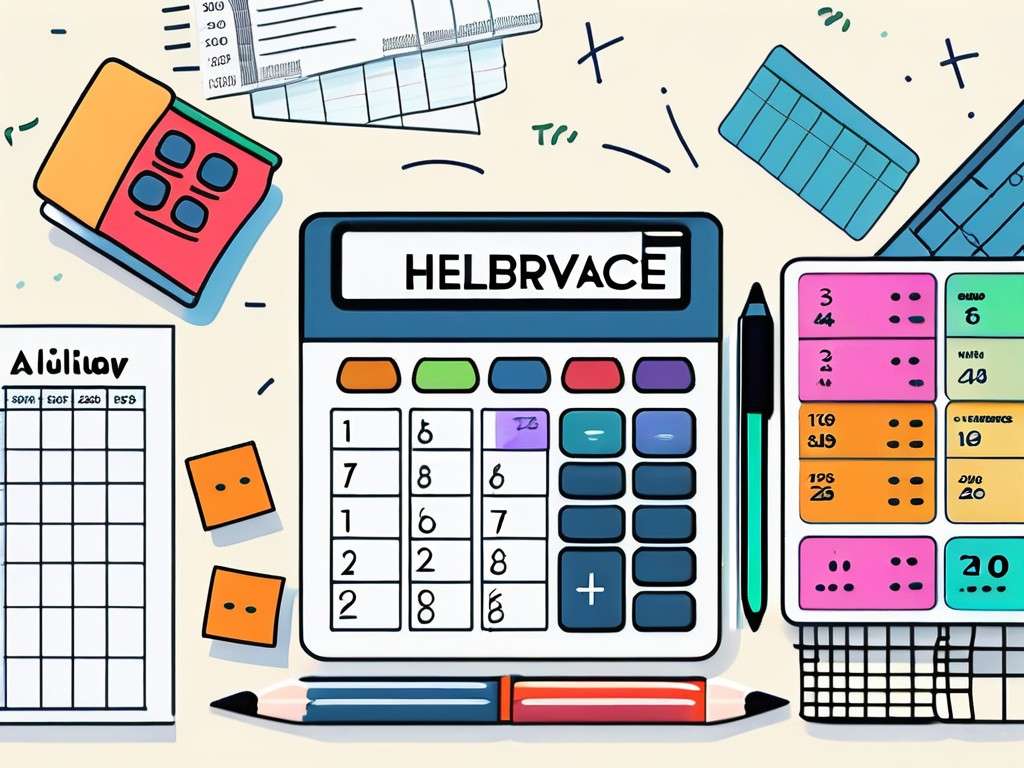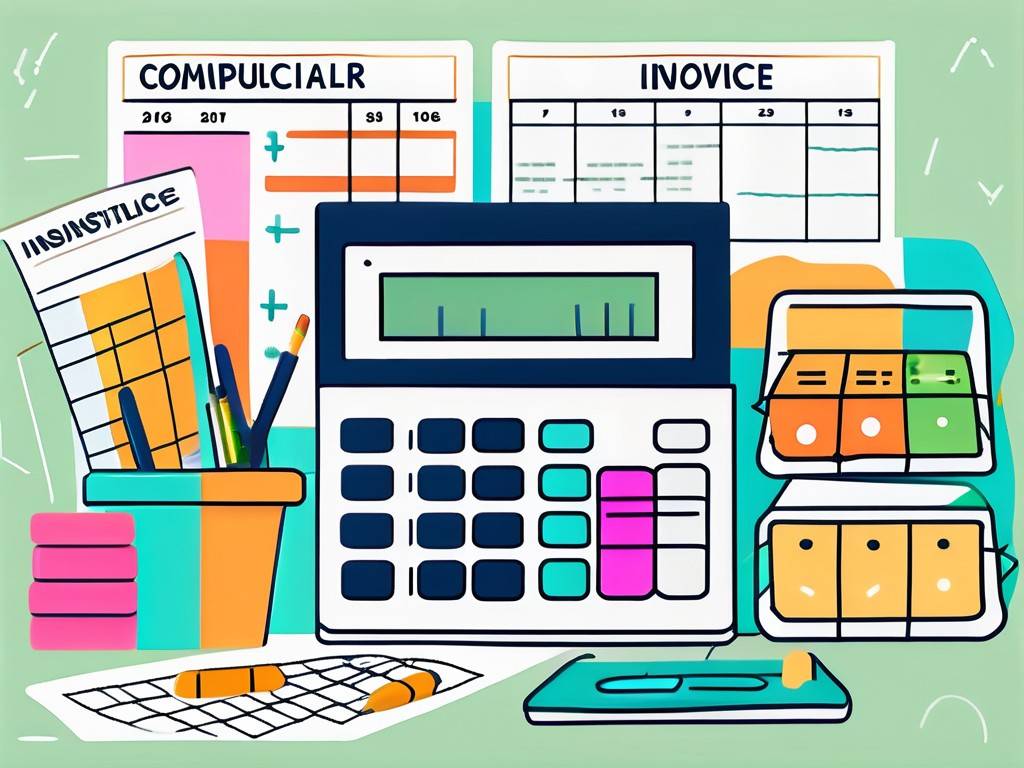Managing billing and reconciliation effectively is essential for childcare services to maintain financial stability, foster trust with parents, and ensure smooth operations. This guide will explore the critical aspects of billing and reconciliation, equipping childcare providers with practical insights to enhance their processes.
Understanding the Basics of Billing and Reconciliation
To excel in the financial aspects of childcare services, it is crucial to understand the fundamental concepts of billing and reconciliation. Each concept plays a significant role in ensuring accuracy and transparency in financial dealings with parents and guardians.
Defining Billing in Childcare Services
Billing in childcare services refers to the process of invoicing parents for services rendered. This includes tuition fees, activity charges, and any additional services a childcare center may offer. Accurate billing is essential for maintaining a steady cash flow and building trust with families.
In this context, billing not only indicates the amount owed but also serves as a communication tool between the childcare facility and the families it serves. Clear, itemized invoices can prevent misunderstandings and promote prompt payments. Additionally, many childcare centers are now adopting digital billing solutions that allow parents to view and pay invoices online, further enhancing convenience and transparency. This modern approach not only streamlines the billing process but also provides parents with immediate access to their financial obligations, fostering a sense of accountability and trust.
Schedule a free 30-minutes session with us!
The Importance of Reconciliation in Childcare
Reconciliation is the process of ensuring that financial records are accurate and consistent. For childcare services, this means regularly comparing the recorded transactions against bank statements and other financial documents to identify discrepancies.
This process is vital as it helps in spotting errors in billing or payments, maintaining financial integrity, and providing a clear audit trail. Without reconciliation, childcare centers risk financial mismanagement, which can lead to severe operational challenges. Moreover, effective reconciliation practices can highlight trends in payment delays or defaults, enabling childcare providers to proactively address potential issues with families. By establishing a routine reconciliation schedule, centers can not only ensure compliance with financial regulations but also enhance their overall financial health, allowing them to invest more in quality care and educational resources for the children they serve.
Key Components of an Effective Billing System
Cultivating an effective billing system tailored to the unique needs of a childcare service is paramount. A robust system can simplify billing processes, improve parent experiences, and enhance overall operational efficiency. In an industry where trust and transparency are crucial, a well-designed billing system can also foster stronger relationships between childcare providers and parents, ensuring that financial transactions are handled smoothly and professionally.
Essential Features of a Childcare Billing System
An effective childcare billing system must include several essential features:
- Automated Invoicing: The ability to automatically generate invoices saves time and minimizes errors. This feature not only reduces the workload on staff but also ensures that parents receive timely and accurate billing information.
- Flexible Payment Options: Providing multiple payment methods, including credit cards, bank transfers, and online payment portals, meets diverse parent preferences. This flexibility can significantly increase the likelihood of on-time payments, as parents can choose the method that best suits their financial habits.
- Real-Time Payment Tracking: This feature allows childcare centers to monitor payments as they come in, improving cash flow management. By having access to real-time data, administrators can make informed decisions regarding budgeting and resource allocation.
By incorporating these features, childcare providers can streamline their billing operations, ease administrative burdens, and contribute positively to parent relationships. Furthermore, a comprehensive billing system can provide valuable insights through reporting and analytics, allowing providers to identify trends in payment behaviors and adjust their strategies accordingly.
Streamlining the Billing Process
Streamlining the billing process involves making it as efficient as possible. This can be achieved by implementing clear billing cycles and automating routine tasks. Establishing a consistent schedule for billing can help parents anticipate when payments are due, thereby reducing late payments and enhancing overall satisfaction.
Childcare centers can also benefit from training staff on the billing system to ensure they can assist parents effectively. Ensuring that billing procedures are clear and communicated can help reduce confusion and enhance the overall payment experience. Additionally, offering resources such as FAQs or instructional videos can empower parents to navigate the billing system independently, further minimizing the need for staff intervention and allowing them to focus on providing quality care to the children.
Schedule a free 30-minutes session with us!
The Role of Technology in Billing and Reconciliation
Modern technology plays a pivotal role in transforming and streamlining billing and reconciliation processes. With the right technological tools, childcare centers can enjoy significant efficiency gains and better financial oversight.

Advantages of Digital Billing Systems
Digital billing systems offer numerous advantages over traditional methods:
- Increased Efficiency: Automation minimizes manual entry and reduces the time spent on invoicing.
- Enhanced Accuracy: Digital systems significantly lower the risk of human error in billing.
- Accessibility: Records can be accessed from anywhere, allowing for better management of accounts and financial oversight.
By leveraging digital billing systems, childcare services can improve their operational efficiency and ensure that billing processes are both timely and accurate. Moreover, many digital billing platforms come equipped with user-friendly interfaces that allow parents to view and pay invoices online, fostering a more transparent relationship between childcare providers and families. This not only enhances the customer experience but also encourages prompt payments, which is crucial for maintaining the financial health of the center.
Automating Reconciliation Processes
Automating reconciliation processes can revolutionize how childcare centers manage their financial records. With automated systems, reconciliation can occur nightly, ensuring that discrepancies are identified and addressed promptly.
This not only saves time but also increases confidence in the financial management of the childcare center. Furthermore, automated reports can provide insights into cash flow that assist in future financial planning. These insights can highlight trends in enrollment and payment patterns, enabling childcare centers to make informed decisions about staffing, resources, and budgeting. Additionally, the integration of automated reconciliation with other financial tools can create a holistic view of the center’s financial health, allowing for more strategic planning and resource allocation.
Navigating Common Challenges in Childcare Billing
Despite the best efforts, childcare centers often face common billing challenges that can disrupt operations. Identifying these challenges enables providers to put measures in place to mitigate them effectively.

Addressing Late Payments
Late payments can pose a significant problem for childcare services, impacting cash flow and financial stability. Establishing clear payment terms and guidelines can help reduce instances of late payments.
Additionally, sending reminders before due dates and implementing late payment fees can encourage timely payments. Open communication with parents about any financial challenges can also foster understanding and prompt resolution. Offering flexible payment plans or discounts for early payments can further incentivize parents to stay on track with their financial commitments. By creating a supportive environment that acknowledges the challenges families may face, childcare centers can build stronger relationships with parents and enhance overall satisfaction.
Managing Billing Discrepancies
Billing discrepancies can arise from various sources, including data entry errors or misunderstandings regarding services rendered. Implementing a systematic approach to addressing these discrepancies is essential.
Childcare centers should establish a clear process for parents to report issues and a dedicated team to resolve them expediently. Regular training for staff on the billing system and procedures can further reduce the likelihood of errors. Additionally, utilizing technology such as automated billing software can streamline the process and minimize human error. By maintaining a transparent billing system, childcare providers can foster trust with parents, ensuring that they feel confident in the accuracy of their invoices. Furthermore, conducting periodic audits of billing practices can help identify recurring issues and facilitate continuous improvement in the overall billing process.
Best Practices for Billing and Reconciliation
Adopting best practices in billing and reconciliation can lead to improved results and better relationships with families. Continuous improvement should be a goal for every childcare service.

Implementing Transparent Billing Policies
Transparency in billing fosters trust and reduces the possibility of disputes. Childcare centers should articulate billing policies clearly, outlining all fees, payment deadlines, and methods in their parent handbooks or welcome packets.
Offering parents access to detailed invoices that break down costs can also demystify charges and promote accountability in financial transactions. Additionally, providing a FAQ section on the center’s website can help address common billing questions and concerns, further enhancing communication and understanding between the center and families.
Regularly Reviewing and Updating Billing Procedures
It is important for childcare services to periodically review and update their billing procedures to reflect changes in regulations, technology, and payer expectations. Regular reviews should involve staff input and feedback from parents to identify areas for improvement.
By keeping billing procedures current and relevant, childcare centers can ensure they are not only meeting compliance requirements but also enhancing the services they provide to families. Incorporating technology, such as automated billing systems or online payment options, can streamline the process, making it more efficient for both the center and the parents. This not only saves time but also minimizes errors, ensuring that families receive accurate and timely billing information.
